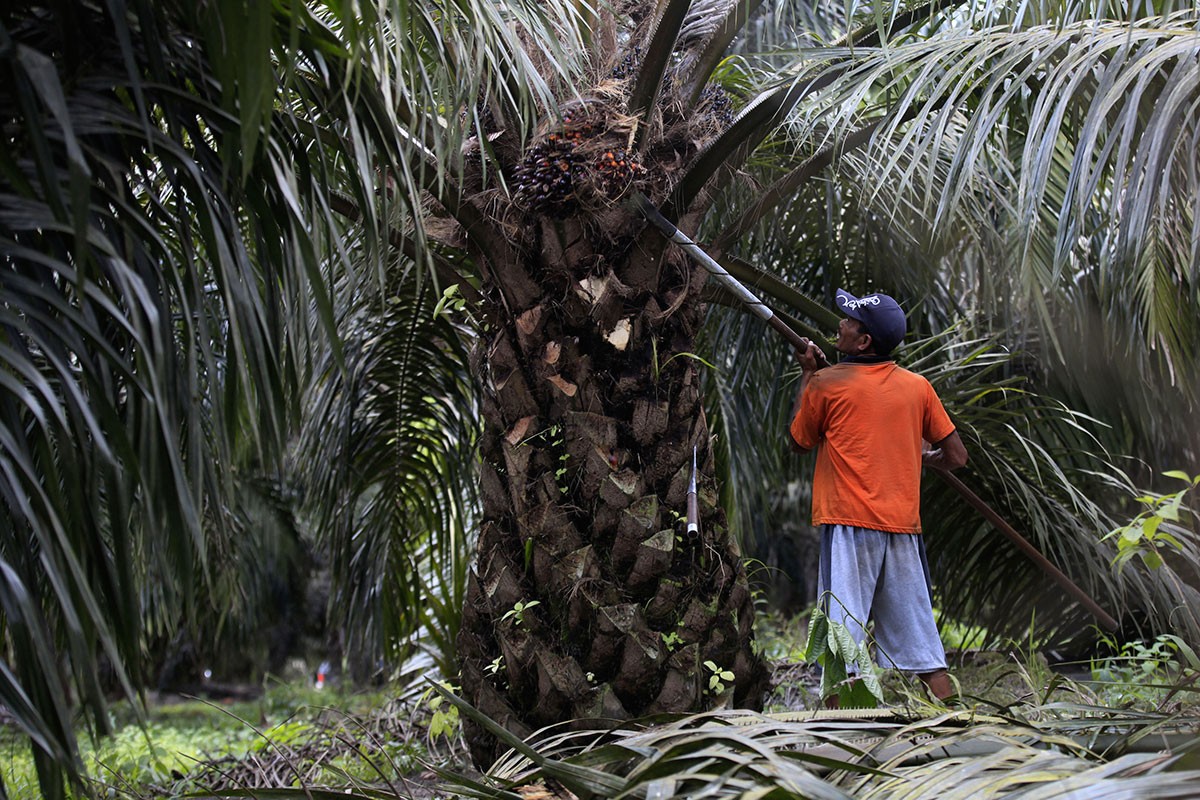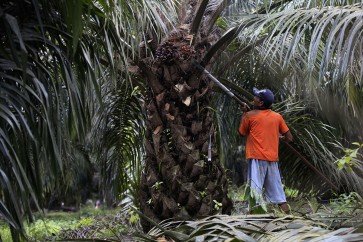Commitment, transparency key for ISPO
Although the ISPO is a national mandatory certification that was introduced in 2011, it has made little progress in improving sustainable practices in the palm oil sector in Indonesia.
Change Size
 A worker harvests fresh oil palm fruit in Pangkalan Bun, East Kalimantan, in December 2015. (JP/Dhoni Setiawan)
A worker harvests fresh oil palm fruit in Pangkalan Bun, East Kalimantan, in December 2015. (JP/Dhoni Setiawan)
T
he palm oil sector is again in the spotlight. The Indonesian government aims to strengthen the regulation of palm oil in the country by reconstructing the Indonesian Sustainable Palm Oil (ISPO). This move started in 2016 and is expected to be completed by the end of 2017.
Although the ISPO is a national mandatory certification that was introduced in 2011, it has made little progress in improving sustainable practices in the palm oil sector in Indonesia.
As of 2016, only about 10 percent of over 2,000 palm oil companies in the country were certified. Moreover, within a three-month period in 2015 (July to October), Indonesia lost over 2 million hectares of forest and peatland due to land burning in cases suspected to have involved companies.
Increasing awareness on the industry’s contribution to the national economy and growing criticism of its sustainability have pushed the government to rework the ISPO. In 2015, palm oil contributed US$12.3 billion to national export revenues, the second largest contributor after coal briquettes. It brought higher revenues than oil and gas exports. However, global criticisms, particularly from European Union countries, are seen as threatening its economic potential.
In April 2017, Members of the European Parliament (MEPs) voted to ban palm oil-based biofuel imports to the EU. A study funded by the European Commission on Oct. 4, 2016, reveals that the EU 2020 biofuel mandate put 2.1 million hectares of land in Southeast Asia under pressure from oil palm plantation expansion, half of which is established at the expense of forests and peatland.
Therefore, the resolution specifically mentioned that the ISPO and the Roundtable on Sustainable Palm Oil (RSPO) failed to address the unsustainability of the sector. Currently, the EU market for Indonesia’s palm oil accounts for 15 percent of Indonesia’s total palm oil exports and is expected to grow with the EU biofuel mandate.
In reworking the ISPO, policy makers can start by exploring one of several major challenges: the global sustainable palm oil market does not recognize the ISPO. This is partly due to the fact that ISPO implementation does not reform land allocation institutions in Indonesia. Rather, the ISPO’s assessment on land legality is still based on permit documents such as the plantation business permit (IUP) and the land cultivation right (HGU), which are problematic.

















